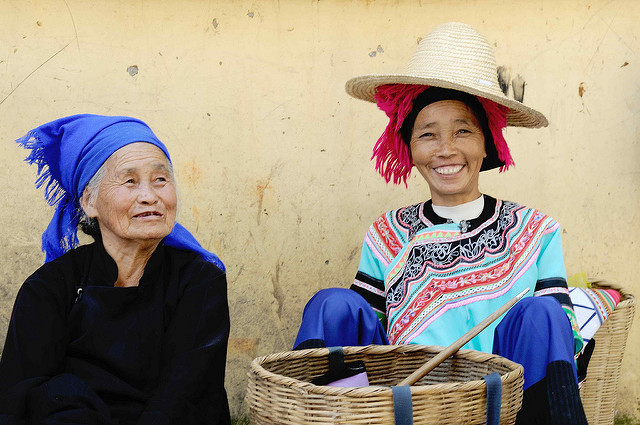Four Notable Social Enterprises Fighting Poverty in Asia
 Of the 766 million people living on less than $1.90 a day, 42 percent of them live in Asia, despite the significant economic development in these past decades. Many global groups realize the importance of aid to change this devastating state of millions, and this list below describes just a few of the organizations worthy of recognition for their poverty-reducing ambitions in Asia.
Of the 766 million people living on less than $1.90 a day, 42 percent of them live in Asia, despite the significant economic development in these past decades. Many global groups realize the importance of aid to change this devastating state of millions, and this list below describes just a few of the organizations worthy of recognition for their poverty-reducing ambitions in Asia.
Hope Place
Hope Place, a Malaysian nonprofit organization, has been providing the Penan community in Ulu Baram more than just the typical food aid packages. After visiting the community to evaluate the amount of food that was needed for the Giving Hope, Sharing Love charity project, founder Kevin Wan and a group of volunteers realized that other health, water and electricity issues created a huge hurdle to the community’s improving welfare.
Eventually, Hope Place collected enough funds and sponsorship to supply solar panels, hygienic products and school supplies for 60 Penan families. More than 100 volunteers ran other important helpful procedures such as health screenings, dental services, haircuts and hair lice treatment to children. Educating the villagers on simple daily habits, such as the proper method of brushing teeth, will improve their personal hygiene and health for the long-run. Calling attention to the various ways of fighting poverty in Asia, Hope Place inspires the community to contribute a range of skills and knowledge to villages in need.
Traphaco
Traphaco, the leading Vietnamese pharmaceutical company which was founded in 1972, strategizes to link its economic growth to environmental protection within the 2017-2020 period as an initiative for its corporate social responsibility. The Green Plan is one of its projects concerned with sustainable development. It aims to increase local herbal materials in its medicinal products and to help local farmers reduce poverty and end hunger.
Covering 28 cities and provinces, Traphaco stabilizes employment for local farmers. As pharmaceutical and medicinal plant production in Vietnam is approximately 80 percent dependent on foreign imports, Traphaco hopes to localize this process. So far, 93 percent of Traphaco’s pharmaceutical products are grown by local farmers.
An inspiration and model for other pharmaceutical companies, Traphaco encourages business models to prioritize sustainable development to eventually parallel the level of effort of multinational corporations. Traphaco is one of many other Vietnamese enterprises that strive to engage the community in sustainability efforts and build support for fighting poverty in Asia especially those in poor and remote areas.
Other Noteworthy Organizations in the Region
Other organizations are equally dedicated to improving the lives of vulnerable communities in countries throughout Asia.
Epic Homes
Another nonprofit with a focus on social improvement for vulnerable communities, Epic Homes is working in Malaysia and Myanmar to provide and conserve homes for different groups of people as well as increase safe, public places for women and girls. Epic Homes hopes to build more than 10,000 houses for the indigenous Orang Asli people most of which have been driven out of their home in the forests. “The community is involved in the building of their own homes, so there is a sense of ownership, a sense that this is not just an act of charity,” said John-Son Oei, founder of Epic Homes. Apart from affordable housing, Epic Homes provides funds through a crowdsourcing design platform for open-air classrooms and outhouse toilets. Epic Homes is an exemplary organization of the growing trend that fights poverty in Asia through social entrepreneurship complemented by growing technologies.
Doh Eain
In Yangon, the social venture Doh Eain, aids residents to conserve older, colonial homes and create safe public spaces for women. With the involvement of the community, Doh Eain has also transformed a few back alleys full of trash into green spaces where residents can relax and children can play. “Yangon has very few public spaces that people can use. Having access to their own back alleys and safe spaces has led to greater social cohesion and a change in behavior,” said founder Emilie Roell in an interview with Reuters.
TraXion
TraXion, a Filipino blockchain enterprise powered by Hyperledger Fabric blockchain technology, is working to provide economic support to 82.6 percent of the population that are underbanked or unbanked through financial services such as providing savings accounts, insurance, investment consultancy and philanthropic crowdsourcing.
One of the three main features of TraXion, TraXionWallet provides financial services such as those mentioned above. TraXion Chain creates customized business solutions on a blockchain to those who request them. TraXion Contract utilizes smart contracts for transparency and accountability of information. Targeting the unbanked and underbanked, these features reduce transaction and remittance fees and the slowness and lack of transparency of an involved bureaucracy. TraXion is one of many icons for the innovative social enterprises fighting poverty in Asia.
– Alice Lieu
Photo: Flickr
